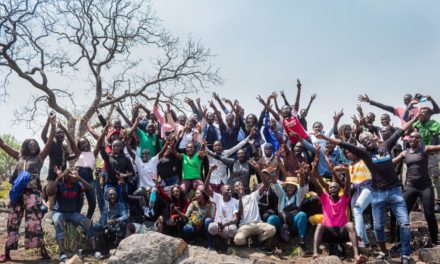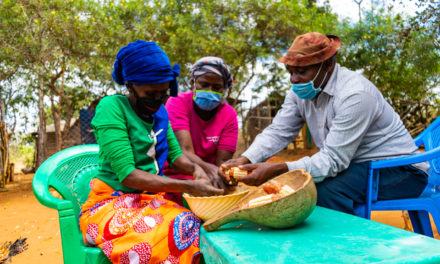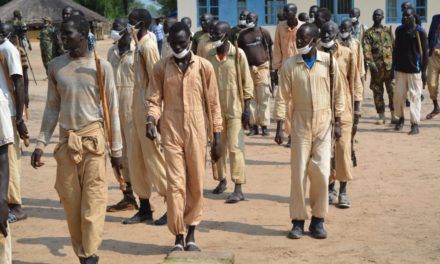
Beda sinks the SPLM for poor governance since 2005

“The failure of the leadership, and of the SPLM, is manifest in a number of ways. First, the SPLM and its leadership per previous provisions of the CPA, was charged to be the responsibility to build a new political system in South Sudan. The SPLM failed completely to build a new political system in South Sudan. So, by the end of the six years’ interim period, the SPLM simply took the poorer version of the Sudanese state, and ran with it. Notably, the SPLM built an authoritarian system in the country, which is becoming more and more tyrannical.” Read the full extract below the article.
By Wani Hillario
The Co-chair of the National Dialogue Steering Committee has criticized the Kiir administration for failure to execute the vision of the liberators.
During the signing of the Comprehensive Peace Agreement or CPA, the SPLM made a series of governance developmental promises to the South Sudanese during the then leadership of the Late Dr. John Garang De-Mabior.
Dr. Garang De-Mabior had promised to use the national oil for infrastructural and agricultural developments.
Angelo Beda is the Co-Chair of the National Dialogue Steering Committee who established the air for the final national conference of the delegates in Juba.
He says the current regime under President Salva Kiir has extravagantly squandered the country’s resources for financing wars and personal interests.
He accused all past and existing cadres of the SPLM of corruption, impunity and failure to deliver services to the people as promised during the liberation struggle.
The national dialogue conference began in Juba on Tuesday November 3rd, under the theme: “Come lets dialogue, come let’s heal our nation.”
Over 500 people representing communities, political parties, religious organizations, civil society groups and others are attending the conference at Freedom Hall in Juba.
They are deliberating on the issues raised during the regional and diaspora conferences since the launch of the initiative in 2017.
The issues under deliberation include; security, governance and rule of law, corruption, the system of governance, land, resource allocation, healing and reconciliation, among others.
He says the Kiir’s regime has excused corrupt officials and ignored the needs of millions of the citizens in the country who are food insecure.
“Corruption became the whole mark of the SPLM-led government and South Sudan and the worse is nobody is arrested and punished for corruption,” Beda said.
“The impunity is the worst because somebody will fear being arrested and be taken to court and imprisoned. All these thefts, nobody is being held accountable imprisoned for!”
Early this year, Transparency International for the second time, ranked South Sudan as the world’s second most corrupt country.
South Sudan was a point below Somalia.
He says that the people of South Sudan are yet to benefit from the oil for development as promised by the then late leader Dr. John Garang.
“From 2005 to 2011, South Sudan only profited from the 50% of the oil revenues the north (Sudan) was getting 50% earning more than half a million in a month. These financial resources were wasted and squandered and there is nothing significant to show for these amounts,” he said.
“Estimates show that South Sudan collected more than 20 billion in oil share during the interim period yet there are no permanent roads. Juba still lacks clean drinking water, Malakal and Wau and electricity not to speak of the rest of the counties. Where did the money go?”
According to economic analysts South Sudan remains dependent on humanitarian support as its leaders continue to mishandle its resources.
Since gaining independence from the north, South Sudan continues to be graded at the lowest indexes.
Angelo Beda said the current SPLM is a complete opposite of the democratic principles it envisioned during the liberation struggle.
He says the leadership of the national dialogue believes that the ongoing national conference will provide lasting solutions to the problems facing the local population.
He hopes the process will also address issues of violation of civil liberties, freedom of speech, freedom of assembly, freedom of press and even freedom to associate politically have largely been curtailed by the Kiir administration.
The national conference which started last week is expected to conclude on November 14.
The participants are also expected to deliberate on some issues affecting the grassroots communities – including communal conflicts, cattle wrestling, and revenge attacks.
President Salva Kiir initiated the national dialogue in December last year, saying it was a means to unite and reconcile the people after years of a brutal conflict since December 2013.
“The people at the grassroots blame the crisis in the country on the failure of leadership. Particularly under the ruling party; the Sudan People’s Liberation Movement. When we reference SPLM, we are talking about the SPLM before it broke into numerous factions as we know today…you cannot as SPLM-IO, you are not part of it. You cannot say you are FD, you are not part of it. You cannot you are SSOA, you are also part of it. Because the people who broke were on the top. And they broke and quarreled, and then engaged their tribes to fight; and things went wrong forever. So we blame the SPLM as such. Not just the one whom we are with here; but those who also left outside. The SPLM took the helm of power in South Sudan, following the signing of the Comprehensive Peace Agreement, CPA, in January 2005. The failure of the leadership, and of the SPLM, is manifest in a number of ways. First, the SPLM and its leadership per previous provisions of the CPA was charged to be responsible to build a new political system in South Sudan; that was to contrast the then existing system in Sudan. So, the CPA said that we now have the South; and it is given to SPLM to change your laws. So that it is different from the one of northern Sudan; and then after that, we shall come to vote. So they wanted two systems, in one country. Two systems; Khartoum – North, Juba-South with different systems, but one country. The SPLA demonstrated, the SPLA failed completely to build a new political system in South Sudan. So by the end of the six years’ interim period, the SPLA simply took the poorer version of the Sudanese state and ran with it. Notably, the SPLM built an authoritarian system in the country, which is becoming more and more tyrannical; although without the substance and authority of a functioning state.”
An excerpt from the co-chair of the South Sudan National Dialogue, Angelo Beda’s speech at the opening ceremony of the National Dialogue Conference in Juba, South Sudan on November 3rd, 2020.





















Recent Comments